On March 10th, we wanted to give you a reminder of what has happened in Tibet over the past 60 years. These days, we don’t get much news out of Tibet, but from accounts that we are hearing, the political and religious repression continues.
On March 10th, Tibetan Uprising Day, we pay tribute to the brave women and men who sacrificed their lives calling for basic human rights and freedom in Tibet.
Tibetan Uprising Day: March 10, 1959
This year marks the 60th anniversary of the Tibetan Uprising on March 10th and the Tibetan Women’s Uprising on March 12th. Six decades ago, thousands of Tibetans gathered in Lhasa to surround the home of His Holiness the 14th Dalai Lama because they feared that he would be abducted or killed by Chinese forces. The vast crowds of Tibetans were protesting the Chinese occupation of Tibet and the suffering they had endured since the invasion of their country in 1949.
Tibetan Women’s Uprising: March 12, 1959

This photograph by the Associated Press is one of the only images from March 1959 showing thousands of Tibetan women surrounding the Potala Palace in Lhasa, the main residence of His Holiness the Dalai Lama, to protest against Chinese rule and repression in Tibet.
We also commemorate the 60th anniversary of the Tibetan Women’s Uprising, remembering the brave Tibetan women who gathered in their thousands on March 12th, 1959 to demand Tibetan independence.
Tibetan women continue to be a steadfast presence in leading the non-violent and peaceful resistance to the repression in Tibet. Tibetan nuns have played a very prominent role in calling for basic human rights and religious freedom in Tibet. Consequently, they have suffered greatly, such as the famous “singing nuns” of Drapchi Prison. Nuns have been arrested, imprisoned, tortured, and killed. They have been expelled from their nunneries and their nunneries have been destroyed. You can read some of their stories here.
Dalai Lama’s Escape into Exile
Fearing for the lives of his people, on March 17, 1959, His Holiness the Dalai Lama, left the Potala Palace and slipped through the crowds disguised as a soldier, setting off on a long, perilous journey into exile in India. He traveled at night and crossed the Himalayas on foot with a small group of soldiers and cabinet members. Unaware of His Holiness’s escape, the Tibetans refused to disburse the area around his home. In response, China’s People’s Liberation Army launched a brutal attack on innocent civilians, immediately killing about 2,000 Tibetans. It is estimated that 87,000 Tibetans were killed, arrested, or deported to labor camps following the uprising.

His Holiness the Dalai Lama, age 23, escaped from Tibet in 1959. India offered him asylum and a home in Dharamsala, where he was permitted to set up a government-in-exile.
“After the flight of the Dalai Lama, Mao crushed Tibet with a vengeance,” said an article “Genocide in Tibet” in The Washington Post. “Institutions of government and education were systematically destroyed; the Buddhist religion was labeled a ‘disease to be eradicated’; nearly 1.2 million out of about 6 million died through armed conflict and famine; large numbers of Tibetan children were forcibly taken from their families and sent to Chinese orphanages for ‘reeducation.’ Research suggests that close to 1 million Tibetans tried to escape to India, Nepal, Bhutan or other regions of their country, but given the vast distances, lack of food in mountainous terrain and military invasion, most either surrendered to the Chinese or died in flight. In the end, only 110,000 Tibetans survived the journey over the Himalayas to join the Dalai Lama in India.”

Ganden Monastery, one of the great monastic universities in Tibet, was destroyed by the People’s Liberation Army during the 1959 Tibetan uprising and reduced to rubble during the Chinese Cultural Revolution. Over 6,000 monasteries and nunneries have been destroyed since the Chinese occupation of Tibet.
Tibetan Buddhist Nuns in Exile
Under the leadership of His Holiness the Dalai Lama, the Tibetan refugees were able to establish settlements all over India on unused land provided by the Indian government. Tibetans were able to set up a Central Tibetan Administration and Tibetan schools in a systematic attempt to restore their cultural institutions. The main monasteries of Tibet were rebuilt in India. While traditionally there had been little education of girls in Tibet, His Holiness said that the new school system should educate boys and girls equally.

In the late 1980s and early 1990s, many nuns escaped to India. The Tibetan Women’s Association organized emergency aid for the nuns. Tibetan exiles donated clothing and essentials such as cooking pots to help the newly arrived nuns who were camping by the side of the road. Photo: Tibetan Nuns Project Archive.
In the late 1980s and early 1990s, following a loosening of restrictions in Tibet and a wave of pro-independence protests, there was a new influx of Tibetans escaping Tibet, including many nuns. The nuns had walked over the Himalayas and were ill and exhausted. Many had been imprisoned and tortured. While one or two nunneries had been established in exile, they were poor, overcrowded, and struggling. The existing nunneries did not have the capacity to take in the many newly arrived nuns.
The Tibetan Nuns Project was formed under the auspices of the Tibetan Women’s Association and the Department of Religion and Culture of His Holiness the Dalai Lama to provide long-term care for the nuns. The Project secured housing, medical care, and most importantly, education for these refugee nuns.

Tibetan Buddhist nuns help build Dolma Ling Nunnery and Institute. Photo: Tibetan Nuns Project Archives.
Over time, the Tibetan Nuns Project built two large nunnery complexes, Dolma Ling and Shugsep. Dedicated to educating nuns in India from all Tibetan Buddhist lineages, the Tibetan Nuns Project had to start an education system from scratch.
Most of the nuns who escaped from Tibet and arrived in India were illiterate and couldn’t even write their own names. Now, over 800 nuns at seven nunneries in India, have the opportunity to study in educational programs focused on the full course of philosophical studies leading to the highest degrees of their traditions.
The accomplishments are many, but there is still much more to do to empower and educate the nuns and to preserve the rich wisdom tradition of Tibetan Buddhism.
Over the last decade, the number of Tibetans escaping from Tibet has plummeted. The plunging number of refugees from Tibet is attributed to tighter surveillance, stricter border controls along mountain passes by the Chinese, and closer ties between Beijing and Nepal, whose relations have become friendlier in recent years.
The oppression inside Tibet during the past 60 years has come in waves. While things are now quieter in Tibet, Human Rights Watch has reported that the apparently benign terms used by Chinese authorities such as “stability maintenance” mask repression there and are, in fact, used to ensure total compliance and surveillance by officials of ordinary Tibetan people.
Repression of Human Rights and Religion in Tibet
Tibetan culture and identity is inextricably linked to Tibetan Buddhism. Buddhist principles and practice are deep in the Tibetan psyche and part of daily life for most Tibetans. The vast majority of Tibetans are devoted to the His Holiness the Dalai Lama and they long for his return to Tibet. Monks and nuns play a key role in their communities, providing guidance and education.
The greatest casualties of the Chinese occupation of Tibet have been Tibet’s religion and culture. One can’t begin to describe here the countless ways in which the Chinese authorities have waged war on Tibetan Buddhism and Tibetan culture. The destruction of over 6,000 monasteries, nunneries, and sacred places before and during the Cultural Revolution was only the start. All aspects of religious practice are closely monitored and controlled. There is a massive army and police presence in Tibet. Nuns and monks are particularly targeted by security restrictions.
Simply possessing an image of His Holiness the Dalai Lama can result in sanctions, arrest, and even torture. Now in a bizarre move, monasteries and nunneries in Tibet are being forced to display portraits of Chinese President Xi Jinping and Mao Zedong on their altars or face punishment.
To decrease the influence of monastics and to prevent a new generation of Tibetans from mastering their language and connecting to their traditional culture, the Chinese Communist Party recently banned Tibetan monasteries from offering Tibetan language classes.
For decades, nuns and monks have been forced to endure “patriotic education” sessions to try to break their beliefs and their allegiance to His Holiness the Dalai Lama. The boy who was chosen as the reincarnation of the Panchen Lama by His Holiness the Dalai Lama has been missing for over 23 years. November 1995, the Chinese government selected a different boy.

Draped in the Tibetan flags, Tibetan Buddhist nuns in India take part in peaceful demonstrations to mark the anniversary of Tibetan Uprising Day, March 10th. Photo courtesy of Olivier Adam
Now China is maneuvering to control the selection process of the next Dalai Lama. His Holiness the Dalai Lama has spoken forcefully against this. He said, “The person who reincarnates has sole legitimate authority over where and how he or she takes rebirth and how that reincarnation is to be recognized.”
“It is particularly inappropriate for Chinese communists, who explicitly reject even the idea of past and future lives, let alone the concept of reincarnate Tulkus, to meddle in the system of reincarnation and especially the reincarnations of the Dalai Lamas and Panchen Lamas,” said His Holiness the Dalai Lama.
On March 10, 2019, we won’t know what is happening inside Tibet. In February China closed Tibet to foreigners, journalists, and diplomats and Tibet is to remain closed until April 1st to prevent the world from bearing witness.
Preserve Tibet’s precious wisdom and culture
“We, here in exile, cannot materially help our people in Tibet, who are confronted with the destruction of all that they love and cherish. We can only pray with all the strength of our hearts that their nightmare of agony and terror will disappear in the not too distant future.” His Holiness the Dalai Lama wrote these words in 1962 on the third anniversary of the Tibetan National Uprising Day.
He went on to say, “There must be an end to the policy of force and intimidation which it [China] is pursuing in Tibet and that the only solution to the Tibetan problem is a peaceful settlement consistent with the fundamental rights and freedoms of the Tibetan people.”
Tibet’s unique religion and culture are global treasures that must not be lost. This wisdom tradition has so much to offer the world now and in the future.
Exile is the only chance for Tibetan Buddhist nuns to get an education.

A Tibetan Buddhist nun practices Tibetan calligraphy at Dolma Ling Nunnery and Institute in India. The Tibetan nuns in exile are helping to hold on to Tibet’s precious religion and culture. Photo by the Nuns’ Media Team
By helping the nuns and nunneries, you are helping to preserve Tibetan Buddhism and are providing the opportunity for these brave, dedicated women to be educated and become teachers and role models. Without the generosity and compassion of Tibetan Nuns Project supporters, over 700 nuns would not have the necessities of life such as education, shelter, food, clothing, and health care. Most of the nuns in India are from Tibet and cannot return to their homeland. They are forced to live as stateless refugees. Other nuns are from remote and impoverished Himalayan regions of India where there is little or no education available to girls and women.
The world needs Tibetan Buddhist nuns now and the wisdom, courage, compassion, and dedication that they embody and bring to humanity. Nuns are holders of a vision we must protect.
With prayers for the well-being and happiness of all sentient beings.

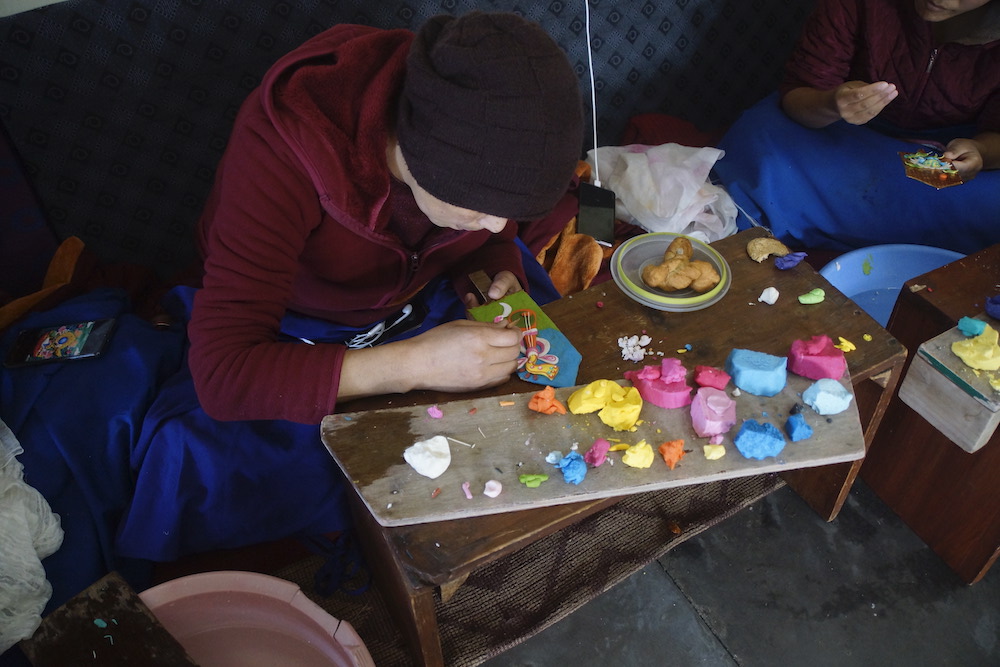
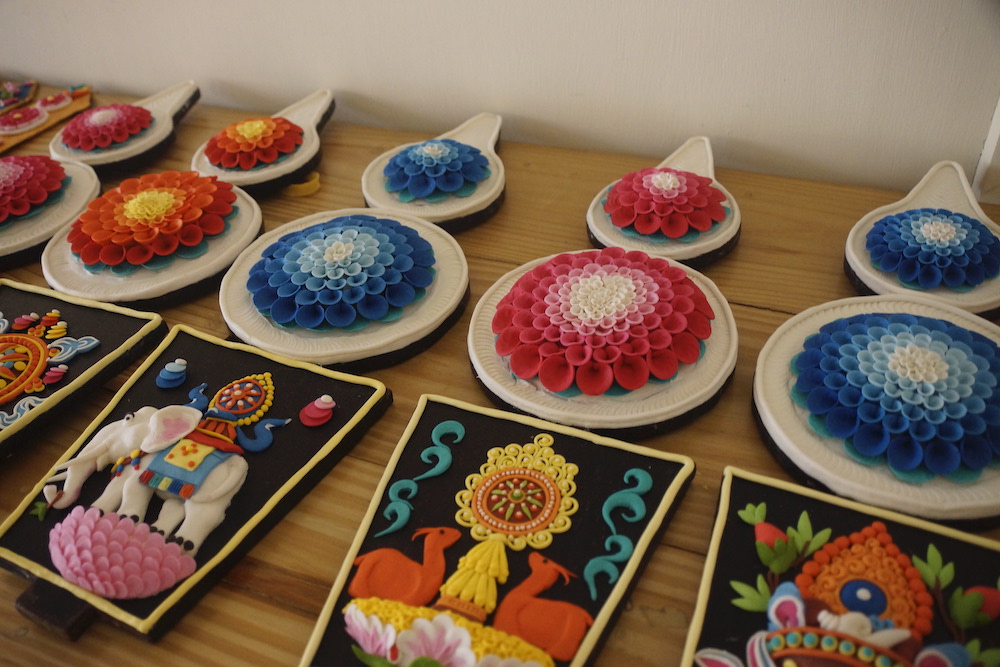
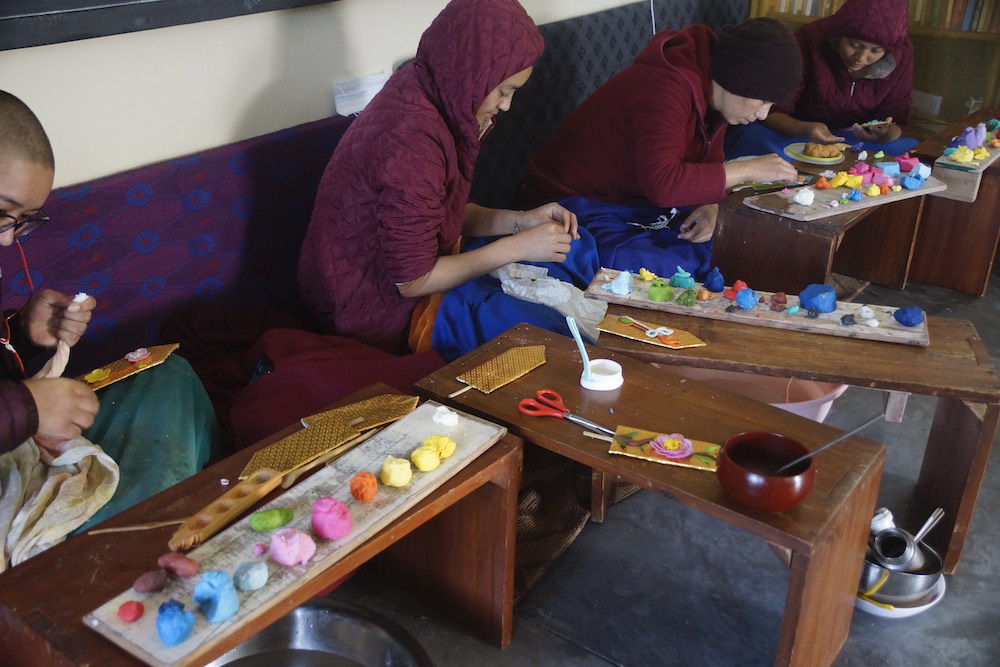
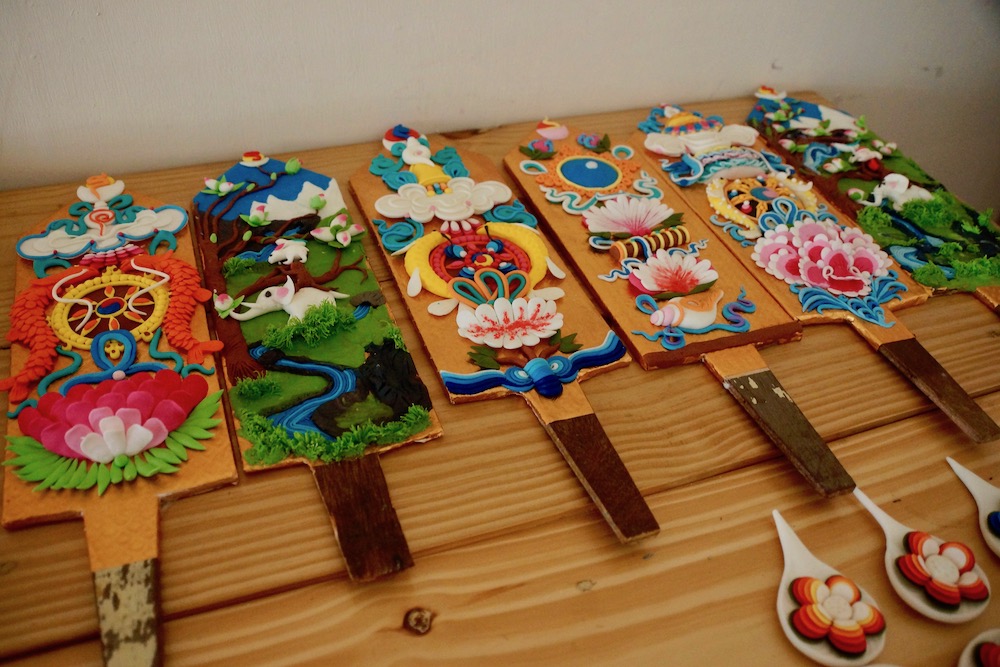
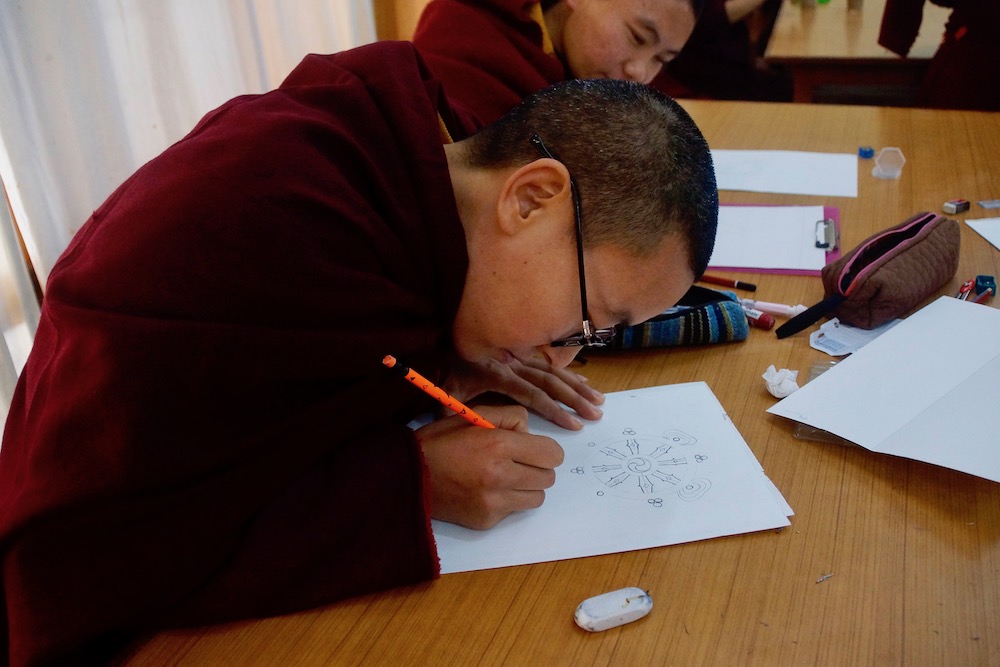
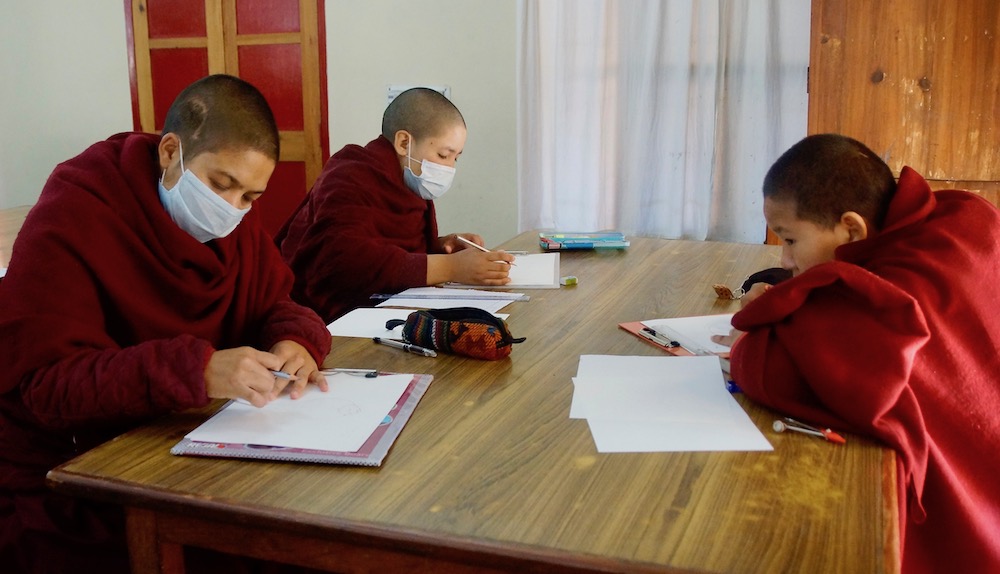
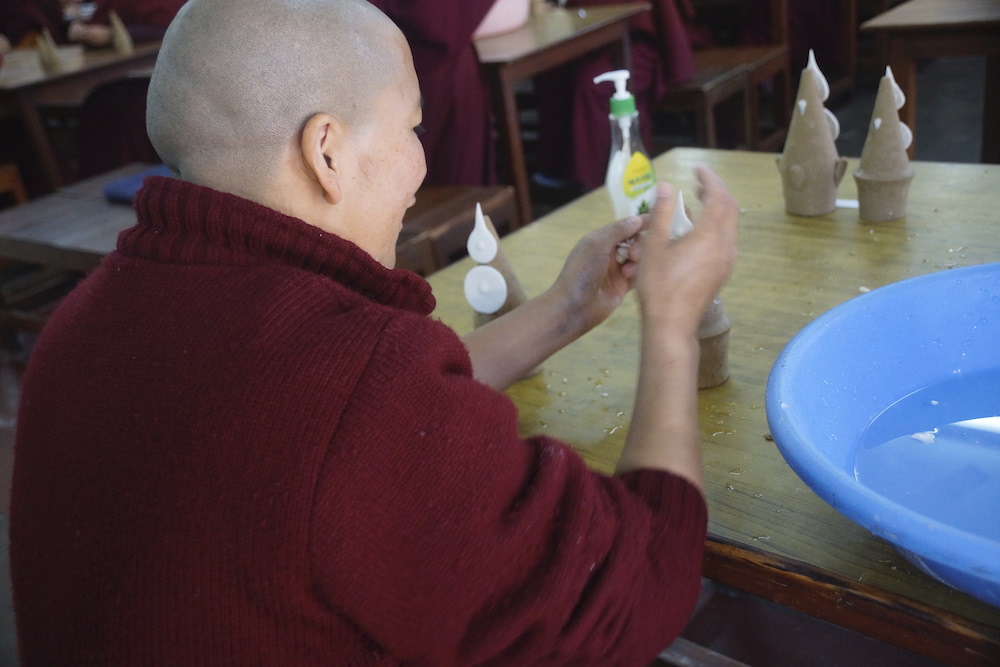
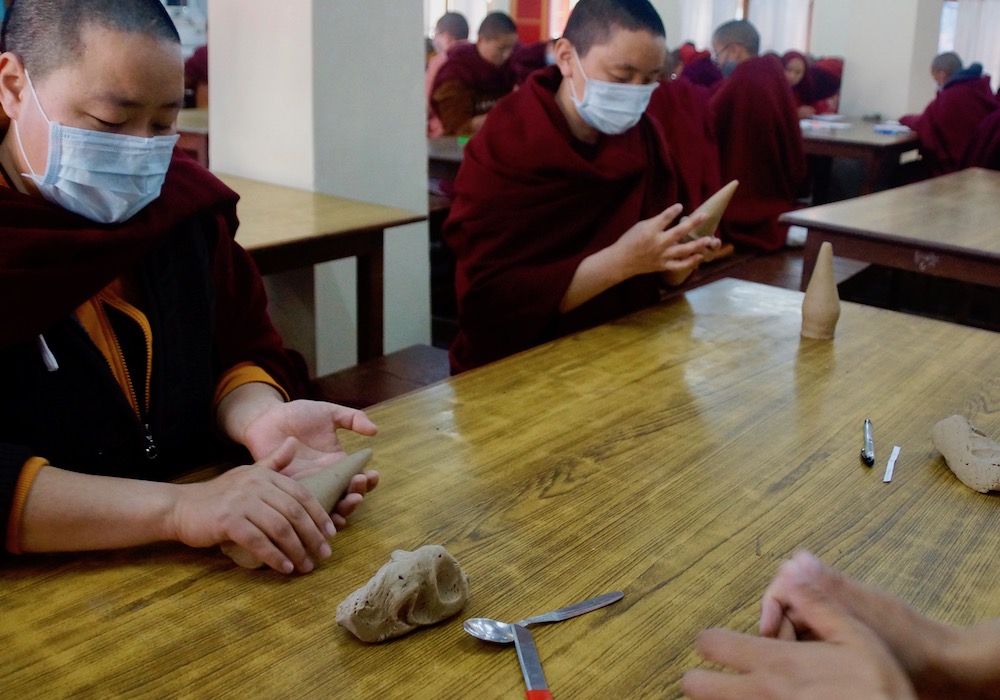
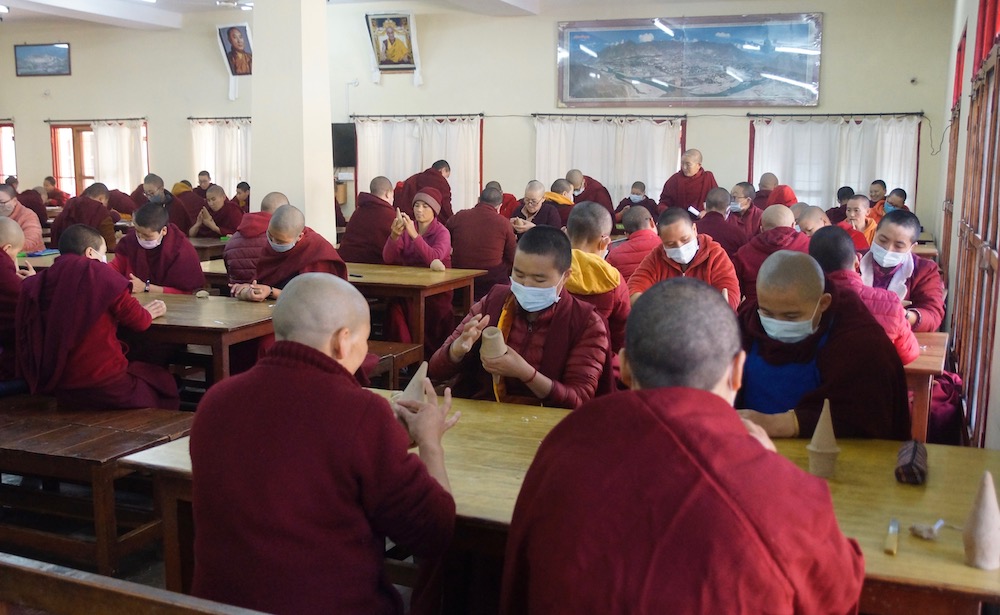
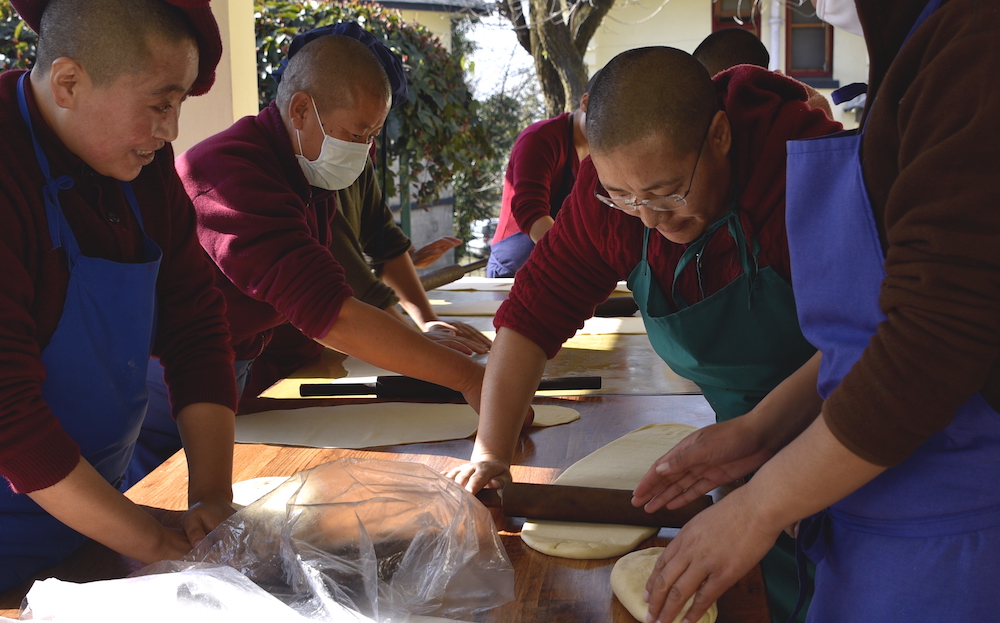
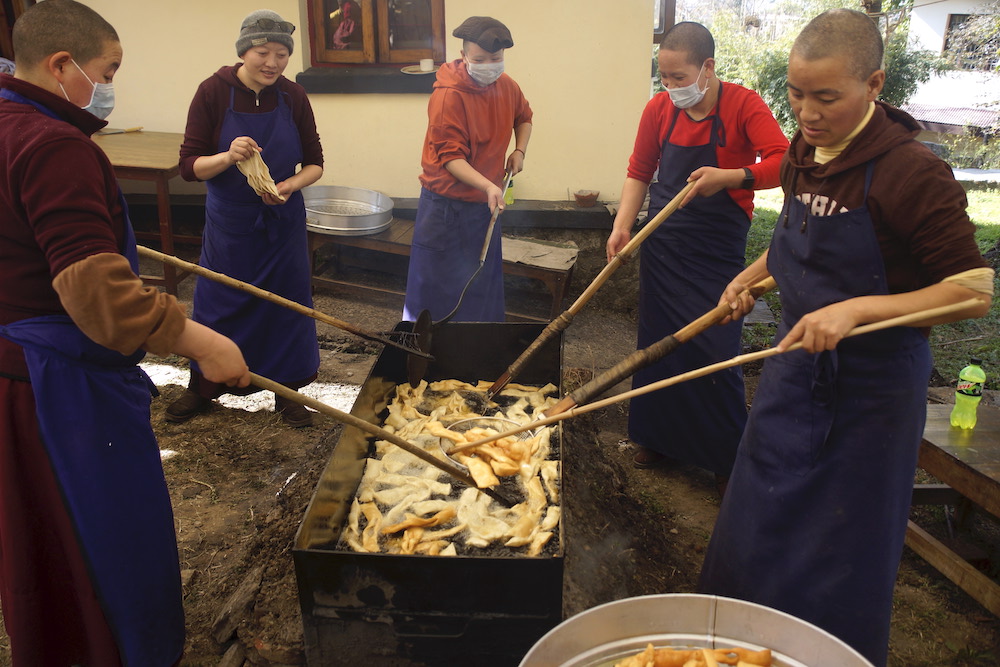
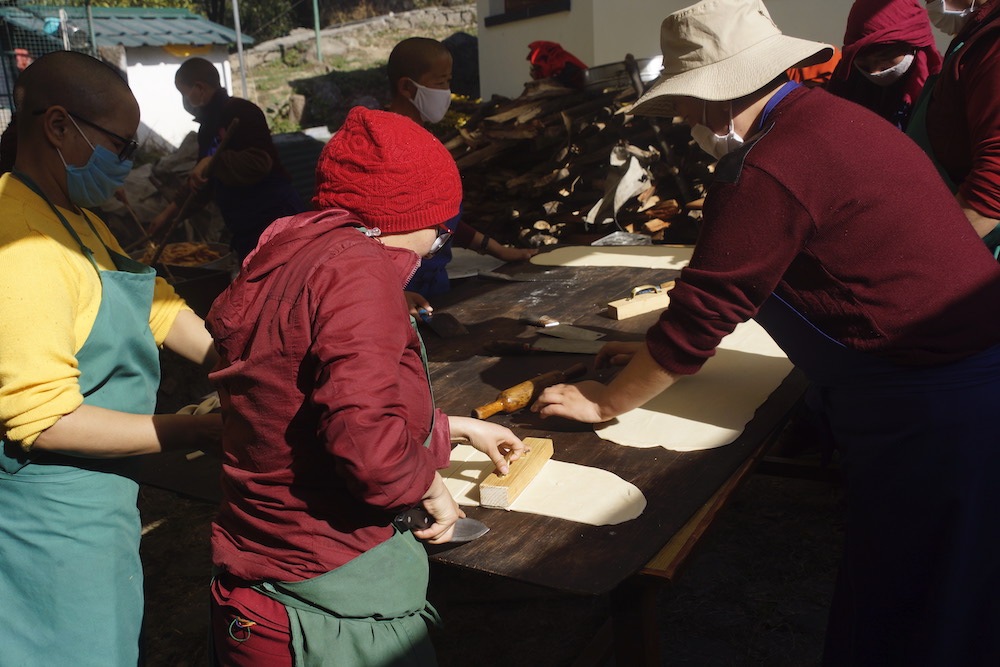
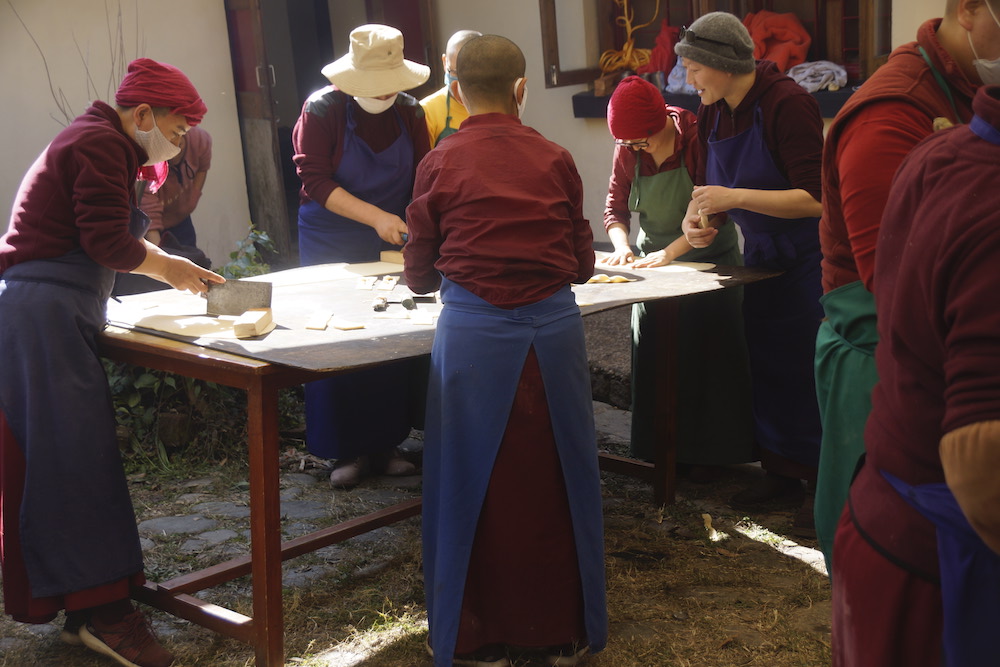
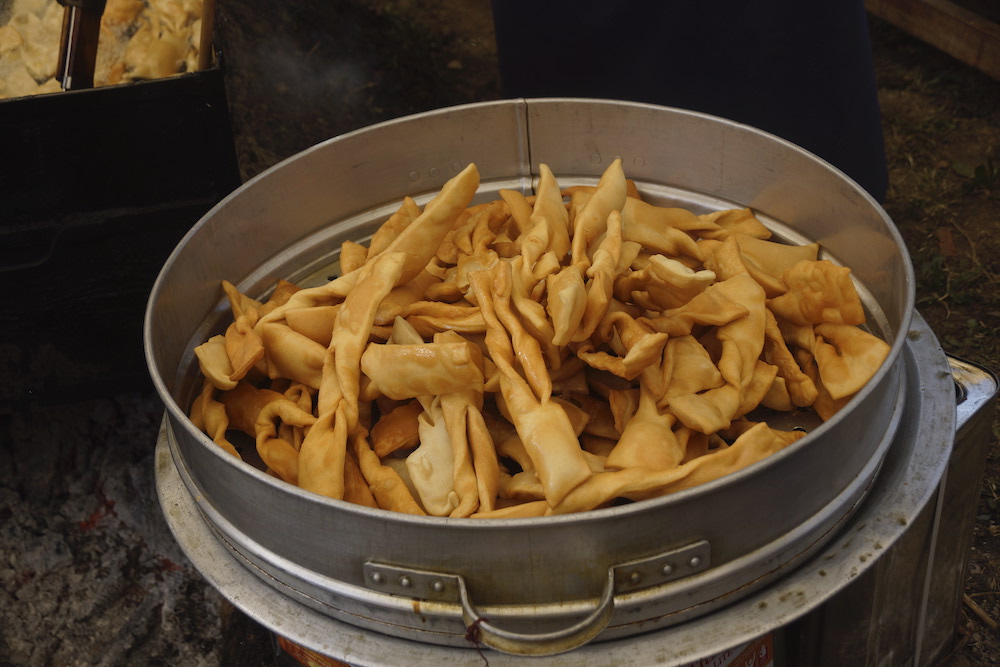
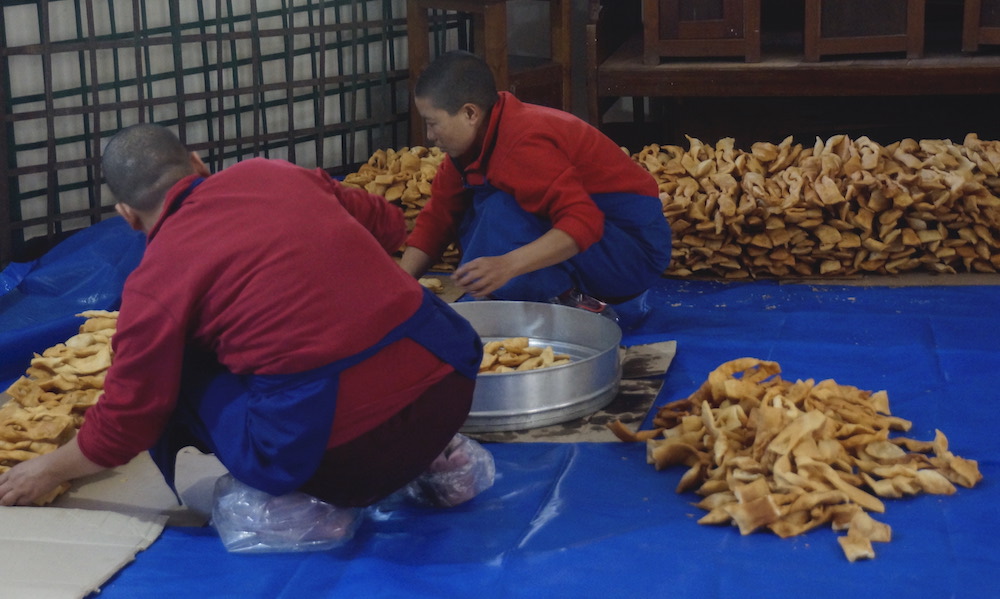















 Around the world, His Holiness the Dalai Lama’s birthday on July 6th will be celebrated with happiness and prayers for his good health and long life. This year His Holiness the Dalai Lama turns 84. The nuns will pray and make special offerings of tsok, khataks (prayer scarves), and sangsol (incense offering) to His Holiness. It’s a day of celebration with special food, such as
Around the world, His Holiness the Dalai Lama’s birthday on July 6th will be celebrated with happiness and prayers for his good health and long life. This year His Holiness the Dalai Lama turns 84. The nuns will pray and make special offerings of tsok, khataks (prayer scarves), and sangsol (incense offering) to His Holiness. It’s a day of celebration with special food, such as 









